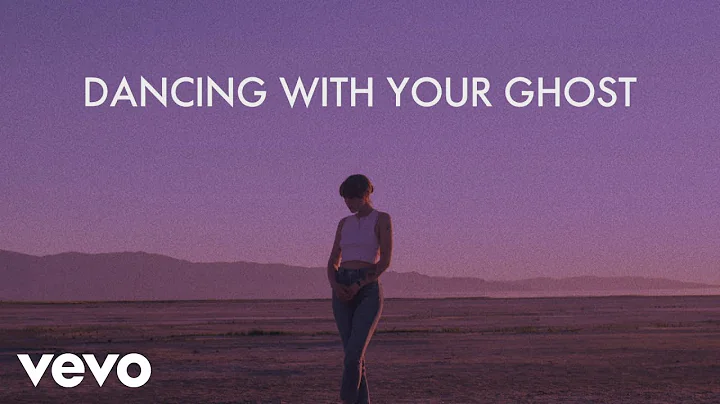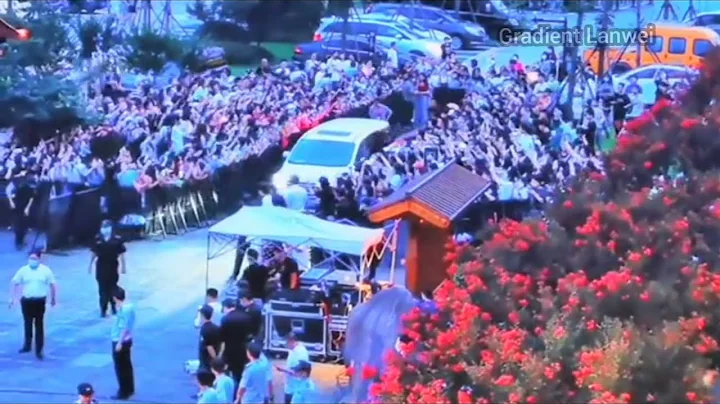
Recently, two music copyright incidents have triggered heated discussions. On the evening of July 3, Taiwanese singer Zheng Zhihua raised objections to the fact that the lyrics of his song " Star Lights " were changed, expressing "shock, anger and regret." On July 1, game anchor PDD was sued for singing the song "Borrow the Heaven for Another 500 Years" during a live broadcast. After communicating with the copyright owner, the two parties reached a settlement. PDD issued an apology statement on its personal Weibo, promising to pay more attention to copyright issues in the future and respect and protect the legitimate rights and interests of copyright owners.
Song copyright issues are common in the Internet age. What authorization is needed to adapt and perform a classic work? How to avoid infringement when singing and using a song? Some experts told Nandu reporters that adapting a song for commercial use without the permission of the copyright owner constitutes a serious crime. Infringement of adaptation rights. If a song sung by an online live broadcast anchor uses a musical work protected by Copyright Law , which involves the copyright enjoyed by the songwriter, he should obtain authorization, otherwise there will be legal risks of infringement.
Changed Lyrics The lyrics of "Stars Light Up" have been changed many times
Recently, Mango TV's well-known variety show "Riding the Wind and Waves Season 3" (hereinafter referred to as Sister Lang 3) aired its third performance stage, hosted by Cyndi Wang and Zhong Artists including Xin Tong, Charlene Choi, Zhang Tianai, Wu Jinyan and other artists formed the "Wu Ailing Sa Jiao" group to perform Zheng Zhihua's well-known work "Stars Light Up", and won the highest score of 915 votes in one fell swoop.
With the popularity of Sister Lang 3, some attentive viewers discovered that this version of "Star Lights" not only changed the arrangement of the original song and added dance, but also made several adjustments to the lyrics. This move caused controversy, and netizens had different opinions on the related topic on Weibo. Some supporters of
said, "Buying the copyright naturally buys the adaptation rights, so there is nothing wrong with changing the lyrics." However, critics believe that "the original lyrics have their own meaning. If they really 'do not meet' the broadcast standards, don't use them." People’s songs”. Some netizens said, "The times are different, the creative background is also different, and the current rules are also different. If you want to modify it, you should really respect the original author."
html On July 3, Zheng Zhihua posted on Sina Weibo about the matter, saying, "About me I am shocked, angry and regretful that the lyrics of the classic song 'Stars Light' have been randomly changed!" It is reported that "Stars Light" was written and composed by Zheng Zhihua and was included in his sixth solo album released in 1992.Nandu reporter noticed that according to the program information of Lang Jie 3, the song "Stars Lighting" is authorized (OP/SP) from Beijing Zhizai Shangzuo Culture Development Co., Ltd., and Cui Zige 's song authorization is also from Zhizai Shangzuo company.
Lawyer analyzes which rights of the copyright owner may be infringed upon by changing the lyrics
Generally speaking, what authorization does the producer need to obtain to perform a classic song on a variety show?
Chief partner of Qinglu Law Firm Xiong Dingzhong told Nandu reporters that the producer Authorization for public performance should be obtained from the copyright holder of the song. If the song needs to be adapted, the adaptation rights should also be obtained. From a rigorous perspective, commercial cooperation authorization should clearly specify the scope of adaptation in the contract. If the scope of adaptation is not clearly defined, the producer should communicate with the rights holder when adapting.
Professor Cong Lixian of the School of Intellectual Property of East China University of Political Science and Law told Nandu reporters that adaptation means generating new works based on other people’s original works, and the consent of the copyright holder of the original work must be obtained. As the singer and songwriter of "Stars Light Up", Zheng Zhihua is the copyright holder if the copyright rights have not been transferred. The producer of Lang Jie 3 adapts the song for commercial purposes. If it does not obtain the permission of the copyright owner, it will constitute an infringement of the adaptation right.
Regarding the view that "you can change the words once you get the right to adapt", Xiong Dingzhong said, "Although academic circles often debate the two rights of adaptation and the right to protect the integrity of the work, a basic consensus is that the right of adaptation has boundaries and cannot be Infringe the right of others to protect the integrity of their work."
what is " protect the integrity of the work ", he told Nandu reporter that the right to protect the integrity of the work refers to the right to protect the work from distortion and tampering. This right aims to protect the author's reputation, reputation and maintain the integrity of the work. According to my country's Copyright Law, the right to protect the integrity of a work is a personal right, which is non-transferable and permanent. In Xiong Dingzhong's opinion, the original connotation of the song will not be affected by the version of "Lang Jie". In theory, it falls within the scope of normal adaptation. It is a subversive change and may be suspected of infringing the copyright owner's right to protect the integrity of the work.
Cong Lixian said that it is difficult to simply judge from the current situation whether the producer of Langjie 3 has infringed the right to protect the integrity of the work, and more information needs to be learned. Further arguments can only be made under various circumstances. He specifically mentioned that in current judicial practice, there is still controversy over the infringement determination standards for protecting the integrity of works, such as the first and second instance judgment opinions of the previous case where , the world's most popular singer, sued the movie "The Nine-Storey Demon Tower". There are differences.
In addition, if the copyright holder of "Stars Lighting" files a lawsuit, can the producer of Lang Jie 3 refer to the previous adaptations of other TV stations as a defense?
Xiong Dingzhong said that the production cost of variety shows is usually very high, and participating in There are many guests, and once the program is suspended or removed due to errors, the impact will be huge, so the producers will be more cautious. However, regardless of whether there is a reference situation, the producer of Lang Jie 3 may be suspected of infringement in the song adaptation, and the copyright owner has. The right to file lawsuits against multiple alleged infringers.
Live broadcast music infringement has always been common.
In the controversial live video, PDD sang " Lend Another Five Hundred Years to the Sky" in front of the camera while playing the original song. "The chorus of a song. During the live broadcast a few days later, he revealed for the first time that he was sued by the copyright owner and claimed 100,000 yuan.
, a retired e-sports player and current game anchor, subsequently posted it on his personal homepage on the live broadcast platform. Two videos apologized. During the live broadcast on the same day, PDD also said: "I will no longer sing at will, and I also want to tell everyone that live broadcasts are commercial and you must get permission from others before singing. "PDD believes that it really has no intention of using it for commercial purposes, nor does it want to accumulate wealth through singing, and hopes that the other party will not sue. Zhang Hongguang, the copyright owner of "Borrowing from Heaven for Another Five Hundred Years" and the famous composer who filed the lawsuit, responded, The amount of the claim is not important. What is important is that it calls on all sectors of society to attach great importance to music copyright. This theme was also reflected in the later negotiations between the two parties on July 7. According to the statement issued by the two parties after reaching a settlement. The client has reached an agreement with Liu Mou (PDD) and Douyu Company. Zhang Hongguang accepted Liu Mou’s apology. The
statement emphasized that with the painstaking dedication of the creators, we have inexhaustible resources. Inexhaustible wealth, protecting their rights from infringement is to protect our common spiritual wealth, which is also our common responsibility and responsibility.
Nandu reporters found that live music infringement has always been an area prone to disputes. Douyu sister" Feng Timo started out with her moving singing voice, and many of her covers of songs have become her capital to accumulate fame. In 2018, the China Music Copyright Association cited Feng Timo for using the song "Lover" in a live broadcast. After the first and second trials, Douyu Company was ordered to pay compensation of 5,200 yuan.
In addition to the China Music Copyright Association, record companies are also a major player in rights protection. Communication Co., Ltd. sued Douyu Company for infringement of the rights of the audio and video producer for the song "Little Leaping Frog". The latter was ordered to pay 1,000 yuan in compensation and delete videos related to the anchor "Liu Feier faye".
lawyer answers whether infringement is not based on the number of sentences sung. Compared with whether
and PDD are infringements, the importance of music in live broadcasts has made people pay more attention to where the boundaries of the legal use of music in the live broadcast room should be drawn? Is humming casually considered an infringement? Or is it based on how many lines are sung?
Director of the Intellectual Property and Competition Law Research Center of Tongji University Law School Zhang Weijun said that the judgment of infringement is not based on the number of sentences sung, but on the performance. The so-called "more than three sentences" standard is not legally valid. If a song sung by an online live broadcast anchor uses a musical work protected by copyright law, which involves the copyright enjoyed by the songwriter, he should obtain authorization, otherwise there will be legal risks of infringement.
Associate Professor She Lihan of the School of Civil and Commercial Economics of China University of Political Science and Law also agrees that infringement is not defined by the number of lines sung, but by whether the songs sung by the anchor are works without the permission of the copyright owner.
As for the way of singing, both scholars said that generally speaking, whether infringement has nothing to do with the way of singing. Funny or deductive performances may constitute infringement. Zhang Weijun added that unless it is a parody, it may fall under the exception of non-infringement.
So is the anchor's casual humming during the live broadcast also an infringement? She Lihan believes that if the "humming" is a work without the authorization of the copyright owner, it may be suspected of infringement. However, in the live broadcast room of professional anchors who receive wages from the platform, especially in commercial scenarios where the tipping function is enabled, singing their works without the permission of the copyright owner is an infringement of their copyright.
The purpose of singing may affect the establishment of infringement, such as the "free performance" exception stipulated in my country's Copyright Law. However, Zhang Weijun believes that song singing in online live broadcasts does not enjoy the statutory exception of "free performance". Because singing songs in live broadcasts is no longer a public performance in the sense of copyright law, but a non-interactive online communication. "Of course, if it is a lyric that is appropriately quoted in the anchor's chat content, it should be considered fair use."
Zhang Weijun further explained that in the PDD incident, the game anchor's singing behavior in the online live broadcast, although it was a performance on the surface, What it infringes upon is the right of non-interactive public communication. Because this method of communication is not limited to a specific space, but is a public communication on the Internet, anyone can enjoy the music performed by the anchor through audio-visual terminal equipment.
After the Copyright Law was revised in 2020, it was clarified that this kind of non-interactive online communication behavior is controlled by broadcasting rights. Webcasting is a broadcasting act, but it does not belong to a broadcasting act by a radio or television station, and therefore does not fall under the exception of statutory permission. Therefore, the live broadcast of the singing of songs on the Internet infringes upon the broadcasting rights of musical works.
In addition, regarding the act of playing unauthorized songs as BGM during live broadcasts, She Lihan believed that just playing the host without singing along was also suspected of infringement. If a sound recording is played, remuneration must also be paid to the producer of the sound recording.
review
How does the live broadcast platform regulate the singing of anchors?
Because he impromptuly sang a few lyrics of "Borrow from Heaven for Another Five Hundred Years" in the live broadcast room, the well-known game anchor PDD (real name Liu Mou) became a typical popular science case of copyright infringement. The reporter actually tested five mainstream live broadcast platforms. How well do they prevent anchors from singing infringements?
Evaluation Results The platform has an exclusive music library
The reporter selected the five mainstream platforms by referring to the download rankings of major application stores and using judgment sampling. Live broadcast platforms for evaluation, including Huya , Douyu, Douyin , Kuaishou, Bilibili . Actual test results show that the aforementioned five mainstream live broadcast platforms all have exclusive music libraries. If the anchor wants to sing in the live broadcast room, he can request songs through the music library in the APP.
Take Douyin as an example. Once you select the live broadcast function, you can select "Music" in the "Interactive Function" and you can request related songs in the music library, such as " Simple Love " and " All the Way North" by Jay Chou " " rainbow " etc.Lawyer Xia Hailong of Shanghai Shenlun Law Firm said that the songs in the music library are generally purchased collectively by the platform to meet the needs of users, and they have the right to use them.
At the same time, major live broadcast platforms have also made some precautionary measures in terms of platform standards. Huya, Douyin, Kuaishou, and Bilibili all clearly emphasize that "the dissemination of unauthorized content is prohibited" in their live broadcast rules; Huya, Douyu, Kuaishou, and Bilibili have dedicated complaint interfaces or complaint mailboxes for reporting infringements.
"Compared with the massive amount of online content, it is actually impossible for rights holders to monitor every platform, and it is difficult to obtain evidence in a timely and complete manner." Xia Hailong of Shanghai Shenlun Law Firm said that with the help of the " safe harbor principle ", as long as the platform is timely Generally, there is no need to bear responsibility for handling infringement complaints and taking down infringing content.
Platform Responsibility In practice, it is difficult for platforms to apply the "safe harbor principle"
Although it is the network anchor who sings or uses infringing songs in live broadcasts, most of the time it is the live broadcast platform that is sued and held accountable. Using "live song copyright" as the keyword, the reporter searched on the legal big data retrieval platform "Handle Case Network" and found that among the 29 results, 15 documents that had nothing to do with the case were removed. Among the remaining 14 similar case documents, the It is the platform that is held accountable. The
"safe harbor principle" distinguishes the platform from platform users. As long as the platform fulfills its "notice-and-delete" obligations, it can enter the safe harbor and does not need to bear responsibility for the user's upload behavior. In the copyright dispute case between Douyu Company and the China Music Copyright Association ("Music Copyright Association") that was concluded in 2019, the Beijing Intellectual Property Court held that Douyu was not a network service provider in the usual sense. The court analyzed that network service providers to which the "safe harbor" principle applies should only provide automatic access, automatic transmission and other network services, which means that the provider will not profit from the user's infringement. In this case, if the network service platform promptly takes measures such as deleting the content after receiving the notice from the rights holder, it will be exempted from liability.
The facts found by the court show that every anchor who broadcasts live on the Douyu platform needs to sign the "Douyu Live Broadcasting Agreement" with the platform. The most important of these is that although Douyu does not participate in the creation, it still enjoys the knowledge generated by the live broadcast. property. Lawyer Zeng Xiangxin from the Hangzhou office of
Shanghai Xieli Law Firm said that at the current stage, platforms need to discover anchors playing unauthorized music and fulfill their responsibilities to promptly notify and delete infringing works. In an ideal world, if it reaches content ID technology similar to that of the video platform YouTube, and uses voiceprint recognition technology such as shazam, it can identify the anchor's unauthorized use and carry out operations such as warning and interrupting the live broadcast.
Interview and writing: Nandu reporter Huang Huishi Huang Liling
Comprehensive 21st Century Economic Report IC photo







![The Animals - House Of The Rising Sun (Music Video) [4K HD] - DayDayNews](https://i.ytimg.com/vi/N4bFqW_eu2I/hq720.jpg?sqp=-oaymwEcCNAFEJQDSFXyq4qpAw4IARUAAIhCGAFwAcABBg==&rs=AOn4CLBa9dih1psYjuzlK5Zx0hvZ_lINEQ)




![[SLO] VOD v juniju 2024. - DayDayNews](https://i.ytimg.com/vi/jw9I9yIpx8s/hq720.jpg?sqp=-oaymwEcCNAFEJQDSFXyq4qpAw4IARUAAIhCGAFwAcABBg==&rs=AOn4CLBpewCf9eyRqCTtoi8vPr3wxep42A)
![ENG SUB [The Happy Seven in Chang'an] EP15 Gloomy Birthday - DayDayNews](https://i.ytimg.com/vi/zubwSHq5vnw/hq720.jpg?sqp=-oaymwEcCNAFEJQDSFXyq4qpAw4IARUAAIhCGAFwAcABBg==&rs=AOn4CLAcZ5_2yE5yBERmYP7f6YDe0FPl5w)

![WANG YIBO : FILM CRITIC SAID YIBO CAN BE REGARDED AS THE BACKBONE OF CHINA'S FUTURE ACTORS [ENG SUB] - DayDayNews](https://i.ytimg.com/vi/FVlcxtiabYA/hq720.jpg?sqp=-oaymwEcCNAFEJQDSFXyq4qpAw4IARUAAIhCGAFwAcABBg==&rs=AOn4CLApgJlP4tb-DTZ1k7qm1nF78H_SHA)





